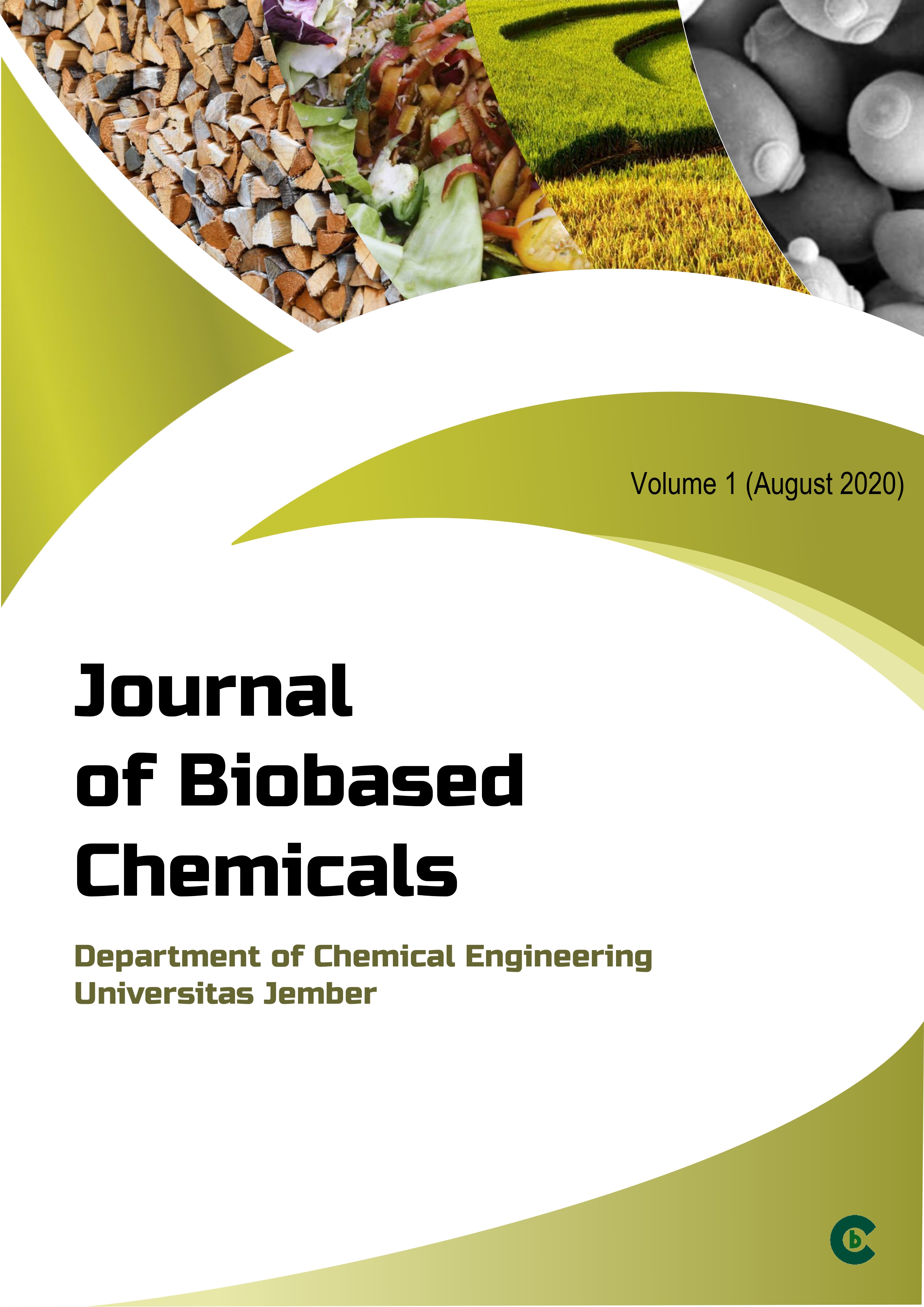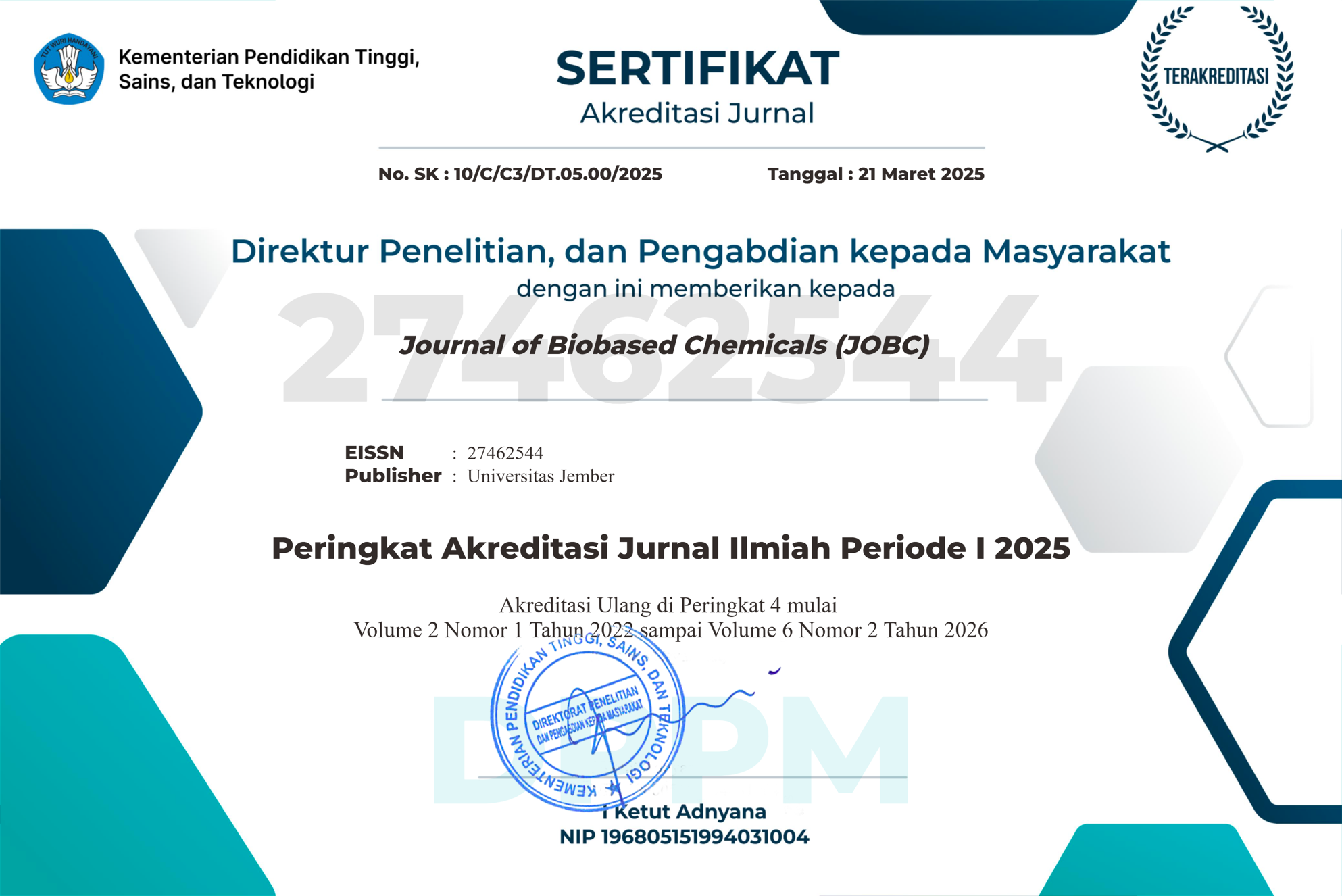Optimization of Subcritical Water Assisted by Nitrogen Before Enzymatic Hydrolisis for Reducing Sugar Production
DOI:
https://doi.org/10.19184/jobc.v1i1.110Keywords:
response surface methodology, subcritical water, enzymatic hydrolysis, sugar production, coconut huskAbstract
The objective of this study is to optimize the three significant parameters of the subcritical water (SCW) process for sugarproduction from coconut husk by using response surface methodology (RSM). In this study, the effect of temperature, reaction time and solvent-feed (S/F) ratio was evaluated and discussed comprehensively. The results showed that the S/F ratio had the most significant effect on sugar yield. The optimal sugar yield was obtained at the highest S/F ratio of 23.4, the shortest time of 4.8 min, and the highest temperature of 183.6 oC of the SCW process. The characterization resultsconfirmed that the lignocellulose structure was changed remarkably then contribute to the efficient processes of enzymatichydrolysis. The parameters evaluation using RSM in this study suggests that SCW hydrolysis could be subjected to commercial purposes.








